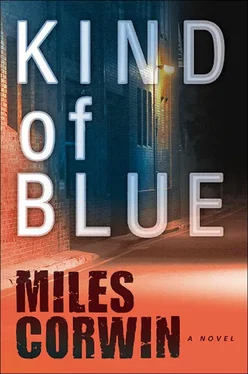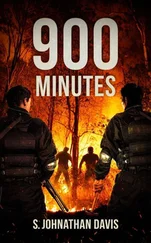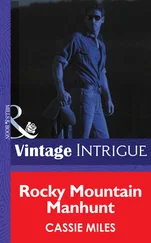Miles Corwin - Kind of blue
Здесь есть возможность читать онлайн «Miles Corwin - Kind of blue» весь текст электронной книги совершенно бесплатно (целиком полную версию без сокращений). В некоторых случаях можно слушать аудио, скачать через торрент в формате fb2 и присутствует краткое содержание. Жанр: Полицейский детектив, на английском языке. Описание произведения, (предисловие) а так же отзывы посетителей доступны на портале библиотеки ЛибКат.
- Название:Kind of blue
- Автор:
- Жанр:
- Год:неизвестен
- ISBN:нет данных
- Рейтинг книги:5 / 5. Голосов: 1
-
Избранное:Добавить в избранное
- Отзывы:
-
Ваша оценка:
- 100
- 1
- 2
- 3
- 4
- 5
Kind of blue: краткое содержание, описание и аннотация
Предлагаем к чтению аннотацию, описание, краткое содержание или предисловие (зависит от того, что написал сам автор книги «Kind of blue»). Если вы не нашли необходимую информацию о книге — напишите в комментариях, мы постараемся отыскать её.
Kind of blue — читать онлайн бесплатно полную книгу (весь текст) целиком
Ниже представлен текст книги, разбитый по страницам. Система сохранения места последней прочитанной страницы, позволяет с удобством читать онлайн бесплатно книгу «Kind of blue», без необходимости каждый раз заново искать на чём Вы остановились. Поставьте закладку, и сможете в любой момент перейти на страницу, на которой закончили чтение.
Интервал:
Закладка:
At a small corner Japanese restaurant I sat at the counter and ordered breakfast-rice, miso soup, nori-dried seaweed-broiled mackerel, and green tea. I dipped a few strips of nori in soy sauce, rolled them up with dollops of rice, and munched on them while I read the Times and waited for my fish. After breakfast, I walked over to the LAPD parking structure on Main Street, checked the license plate number on the key ring, found the green Chevy Impala with 163,000 miles on the odometer, and headed back down to San Pedro.
When I arrived at Relovich’s house, I walked up to the porch and looked out at the harbor. Fog shrouded the horizon and a brisk breeze rippled the water. The mournful bellow of a tanker steaming out of a berth toward the open sea echoed in the distance. I leaned against a wooden railing, heard a bark, and spotted Ray Persky’s van pull up at the curb and his bloodhound, Ruby, licking the back window. I shook hands with Persky on Relovich’s porch.
“Thought you’d quit,” Persky said.
“I did. But I came back yesterday.”
Persky fixed me with a sympathetic look. “I really felt bad when the papers blasted you after that girl got killed.” He put a hand on my shoulder. “I know you. I know how careful you are. It couldn’t have been your fault.”
I felt my temples throb. The first person I encountered on the job mentioned the murder, and I got a splitting headache. I knew the Patton case was going to keep coming up. I knew I was going to be stressed. And I knew I had to confront the reminders with some equanimity. I spit in the gutter.
“Thanks for the support, Ray.” Eager to change the subject, I led him inside the house and briefed him.
“Anything you’re sure the killer touched?”
I pointed to a chair a few feet from the sofa. “I think he sat here for a bit.”
“That’ll work,” Persky said.
He pulled a small, plastic vacuum cleaner out of his duffel bag, flicked on the power, and slowly ran it over the sofa for several minutes. Then he removed a gauze pad from the vacuum cleaner, thrust it beneath Ruby’s nose, and slipped it into a plastic Baggie. He patted Ruby on the ribs and murmured, “Do your thing, old girl.” The dog jumped up, sniffed the carpet, scampered out the front door, around to the back of the house, sniffing the ground by the broken window, and then to the front porch and onto the sidewalk, as Persky and I followed. The dog barked, nose down, and ambled off, straining against the long leather leash.
“Shit,” I shouted as Ruby urinated on my left shoe.
“You have been away a while,” Persky said. “Don’t you remember? She pisses when she picks up a trail.”
We followed Ruby down to the bottom of the hill. She paused and then veered left, speckling the sidewalk with urine. This spot was across the street and down the block from where the gangbanger with the spiderweb tattoo was selling drugs.
She ambled down the sidewalk, swung left, began to climb a hill and suddenly stopped, sniffed the sidewalk and the curb for a few minutes, occasionally lifting her head and yelping.
“Why’s she stopping here?” I asked.
“This is where the scent ends,” Persky said. “This indicates that, more than likely, your suspect got in a car and drove off. Does that fit with your suspect’s MO?”
“I wasn’t thinking that last night, but now it makes sense. That’s kind of a narrow street by Relovich’s house. Neighbors would have noticed the shooter’s car. He probably figured it would be safer to park here, walk over to Relovich’s street, climb the hill, take care of business, and then slip back to his car.”
I patted the dog, then clapped Persky on the shoulder and said, “I appreciate it, Ray.”
As we slowly traipsed back up the hill, the sun began to bleed through the fog and golden shafts of light slanted through the mist. While Ruby stopped to sniff a tree, I admired the view up the hill. May was my favorite time of year in Southern California-after the winter rains, before the June gloom, when shades of purple graced every neighborhood. A lush canopy of jacaranda trees led up to Relovich’s house, the lavender blossoms in full bloom. Pendulous clusters of lilac wisteria cascaded over eaves and violet stalks of Mexican sage sprouted from gardens. As I climbed the hill, the sidewalks stained from the jacaranda blossoms, I felt as if I were floating on a purple cloud.
When I reached the top, I scanned the harbor, which looked entirely different in the light of day than it had the previous night. Unlike much of the Southern California coastline, San Pedro has a working waterfront, an industrial jungle dotted with two hundred-foot-high cranes used to transport goods to and from the ships. Metal cargo containers as big as railroad cars were lined up on the docks and fishing boats traversed the channels.
I returned to Relovich’s house and slowly strolled through the rooms, not knowing exactly what I was looking for, just hoping something would catch my eye. I realized, again, how every room was a mess, except for the daughter’s. Walking out of the house toward my car, I was left with the impression that Relovich didn’t care much about his own life, but he loved his little girl and probably found her visits the only meaningful part of his week.
I cruised down to the Harbor Division station, a bland, blocky, orange brick structure hard by the freeway, facing the railroad tracks, where a freight train rumbled by. I walked through the station to the scuffed prefab trailer in the parking lot that housed the homicide unit: a makeshift squad room with frayed blue-gray carpeting. Eight battered metal desks were bordered by metal filing cabinets topped with brown cardboard boxes overflowing with case files. Fluorescent lights cast a pale green tint over Detectives Hank Savich and Victor Montez, who were waiting for me at their desks. Neither stood up when I introduced myself; neither extended a hand.
I sat down on the edge of a desk and said, “I really appreciate you coming in on Saturday morning to help-”
“First of all, I don’t like getting bigfooted,” said Savich, who had a pale, narrow face pockmarked with acne scars. “I don’t like outsiders taking my cases.”
I was well aware that divisional detectives often resented it when Felony Special-or one of the other specialized units from the Robbery-Homicide Division-took over an investigation. Some were able to put their resentment aside, act professionally, and provide the downtown detectives with a proper briefing. Others, like Savich and Montez, apparently could not overcome their wounded pride. I understood how they felt. Still, I wasn’t in the mood to take any shit from them.
“I didn’t take this case. It was assigned to me by my lieutenant.”
“I thought you’d quit, Detective Le- veen,” Savich said, intentionally mispronouncing my name.
“It’s Le- vine.”
“Whatever,” Savich said.
“I did quit. But now I’m back.”
Montez, pear-shaped and cocky, stood up beside his desk and looked down at me. “Witnesses like Latisha Patton might not get protected at Felony Special, but here in the Harbor, we make sure our wits don’t get capped.” He smiled malevolently. “So if we tell you what we’ve got, you’ve got to promise to be real careful, Detective Le- veen.”
I clenched my teeth, trying to control my anger. But almost against my will, I found myself jumping to my feet and, with a quick backhand, I swept everything off Montez’s desk, a half-filled coffee cup and pens, pencils, and paper clips scattering on the floor, the cup shattering on a desk leg and the coffee pooling on the carpeting. I kicked a coffee cup shard across the squad room and shouted, “I came here to be briefed! Not to listen to your sarcastic fucking comments!”
Читать дальшеИнтервал:
Закладка:
Похожие книги на «Kind of blue»
Представляем Вашему вниманию похожие книги на «Kind of blue» списком для выбора. Мы отобрали схожую по названию и смыслу литературу в надежде предоставить читателям больше вариантов отыскать новые, интересные, ещё непрочитанные произведения.
Обсуждение, отзывы о книге «Kind of blue» и просто собственные мнения читателей. Оставьте ваши комментарии, напишите, что Вы думаете о произведении, его смысле или главных героях. Укажите что конкретно понравилось, а что нет, и почему Вы так считаете.












